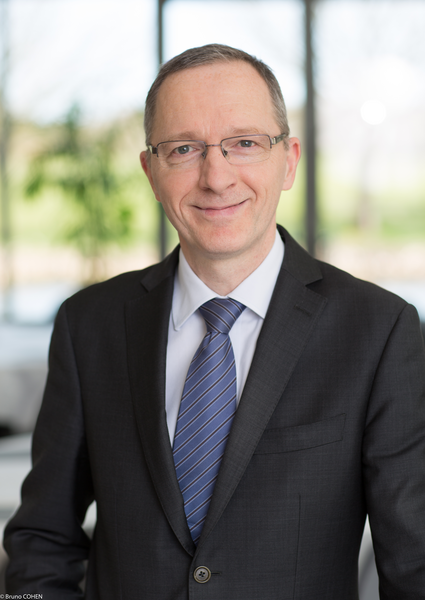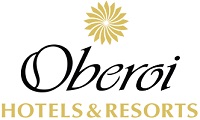Category: Europe - France - Industry economy
- Careers
- Interviews and portraits
vRenovation / Addition - Career - Interviews
Interview made by Romane Le Royer on 2024-05-28
 Christophe Wielgosik, Managing Director of Hostellerie Briqueterie & Spa
Photo credit © Bruno Cohen / Hostellerie Briqueterie & Spa ‘Loyalty’. This is how Christophe Wielgosik describes his long career in the hotel and restaurant business. With the acquisition of Hostellerie La Briqueterie & Spa de Vinay by Beauvallon Collection in September 2023, Wielgosik, who until then had been the property's assistant manager, has become the head of the five-star Relais & Châteaux. The 40-key hotel has just been renovated, and offers guests a luxurious moment in the peace and quiet of the Champagne countryside.
Christophe Wielgosik is no stranger to big hotels: after a few years in Scotland, he began his career with the Concorde group, at the Château Hôtel Mont Royal Chantilly, as head waiter, then at the Lutetia in Paris, as director of the gourmet restaurant. He then joined Starwood Hotels & Resorts at the Sheraton Roissy Charles de Gaulle as Restaurant Director for 18 years. After a spell at the Miramar Crouesty (now Miramar La Cigale, editor's note), in Arzon, where he managed the hotel when it was bought by the Emir of Qatar, and during the renovation work, he briefly returned to Chantilly, at the Dolce. He finally left the Oise region for the Marne region, and in 2022 took up a position at Hostellerie La Briqueterie & Spa as assistant manager, working alongside Alix Philipon, the owner at the time.
Now surrounded by Amaury Rostagnat and Lucie Brindjonc, partners at the head of Beauvallon Collection, Christophe Wielgosik wants to take his time with La Briqueterie, while the hotel was closed for two months for major works. After a partial opening at the end of March, on Monday 27 May the Hostellerie inaugurated a brand new spa-hammam and indoor swimming pool, as well as all of its 40 rooms.
To mark the reopening, Christophe Wielgosik spoke to Le Journal des Palaces about the revival of this iconic Champagne property, and also about recruitment and team management. Two subjects that have been the subject of numerous developments in the sector.
Journal des Palaces: What do your many years of experience in the restaurant business mean to you as head of the Hostellerie?
Christophe Wielgosik: Apart from my time at the Miramar, where I ran the hotel for two years, I've spent virtually my entire career as a restaurant manager in large structures, which is my area of expertise. There's no copying and pasting here. I bring my group experience, techniques and management philosophies to a company like La Briqueterie, which has just 40 rooms and 45 employees, in order to develop them. If I take the example of La Briqueterie, these are local people who haven't necessarily known anything other than the region and who can't be adept at different work philosophies. I work with human behaviour, not technology. I only recruit from a behavioural perspective, I analyse candidates' behaviour and their technical skills come second. You can do whatever you want, invest a lot of money, but if you don't have the right staff for your project, you won't achieve anything. The only thing you can't change about staff is human behaviour. So I work with ‘mental orientations’, which place my teams in an enneagram (editor's note: a tool for classifying personalities into nine different types). A manager or head of department is often asked to lead people. But to manage people, you have to know yourself.
What does that mean?
You have to start with the basics: what is your management style, how do you place yourself in the enneagram, what is your behaviour... With this base, you can manage people and express empathy towards employees, who for me are more internal customers than employees. It's much easier to work in this order. In today's world of work, if we were only looking for people who had graduated from hotel school, spoke three languages and were predestined for Michelin stars, we wouldn't have many candidates. I work on the principle that what interests me is someone who has a positive attitude and who wants to work. I have very experienced people who will pass on their knowledge: my head waiter is a wine encyclopaedia, he will mentor a young person who has the desire to train him. Similarly, my head waiter has 35 years in the business, so he's there to pass on his knowledge: how to take an order, how to serve, and so on. If the person you hire doesn't have a good attitude towards this, there's no point.
La Briqueterie was bought by Beauvallon in September, what changes have been made?
With Beauvallon, and in particular with Lucie Brindjonc, who is now associate director and head of the group's second hotel in Beaune, I have rediscovered a common structure and philosophy, since we both come from the Starwood Hotels & Resorts Worldwide group: I from the Sheraton Roissy Charles De Gaulle and she from the Trianon Palace. We now have a real strategy and we know where we're going. It's important to be able to direct and lead your teams, so that they know where we're going, how and with whom. The project has been explained to everyone, and everyone is aware of our intentions, what we want to do and how long it will take. We want to go step by step, and we will go after what we need to go after, according to our own clear objectives, set for the end of the year.
So you really want to take the time you need with La Briqueterie to do things right?
Absolutely. That goes hand in hand with the whole philosophy of the Beauvallon group: commitment. When I recruit someone, it's to get them really committed, not for a fortnight or a month. That's important: we want to be able to build, but we can't build in a month. We have to train people, we have to ‘paint’ them with our own brush. We have to instil the Group's philosophy in them.
What role have you and your teams played in the renovations?
Amaury Rostagnat has always been clear on this point: all the plans drawn up by the architect were passed on to us. Every employee was familiar with the plan and we were the ones who had to approve it, even before Mr Rostagnat. If we thought something was wrong, we had the right to say so and have things changed. There is total transparency between the owners, management and employees. It's the first time I've seen this: owners who listen, because they assume that we're the ones who are going to be working in the middle of the development. If you build something that isn't functional, there will be a problem with the work, and our owners understand that.
What type of clientele does La Briqueterie cater for?
There are two very distinct customer groups, neither of which should be neglected, in my opinion. The weekend clientele, 50% of whom are foreign Europeans, particularly Anglo-Saxons and Belgians, as we're on the ‘English motorway’. But also a lot of Parisian customers, because we're less than two hours from Paris.But we also need local people during the week. We want the champagne houses to come to La Briqueterie for business meals with their clients. If we are to become a local institution once again, we need to embrace the local scene, something that hasn't necessarily been done for years. That's why I went to the champagne houses during the months they were closed, to represent our hotel, talk about the work that had been done and what was being put in place: we also had to adapt our offer to what the champagne houses were expecting. We have reintroduced a bistronomic menu at €49, because that's what our customers are looking for, above all for budget reasons.
What activities do you offer your customers, both at the hotel and in the Champagne region?
La Briqueterie offers a spa and hammam, an indoor swimming pool and a fitness room, all of which have been completely refurbished. Our goal for 2025, which is currently only under discussion, is to build an outdoor swimming pool, a tennis court and a padel court. We also offer excursions, as we have partnerships with champagne houses. The aim of the work carried out by the reception team and my accommodation manager, Kingsley Apollon, is to have a real interaction with customers to find out exactly what they want to do during their stay with us: do they have children, do they want to go on excursions or not... Either the customer takes care of their own bookings, or we programme tours of the vineyards in a 4L, including a meal. We also organise excursions to Reims. However, Hostellerie La Briqueterie is still primarily a wine tourism destination.
How did the work on the hotel enable you to implement a full CSR programme?
Until now, La Briqueterie was heated by oil. We have done away with this. We also opted for reversible air conditioning in all the rooms and heat pumps in the rest of the hotel. As for sorting, all our vegetable waste is taken to Rethel, near Reims, by the company Agricyclage, which recovers it and turns it into gas. The remaining waste becomes compost, which is redistributed to neighbouring farmers. We're operating in a closed circuit, with the aim of achieving Green Key status. We are currently studying the steps we need to take to become energy self-sufficient, to keep everything in-house and turn it into compost for the gardener. Our paper is recycled, as are all our archives and cardboard boxes. As a result, we have almost no household waste: everything is recycled. For food, our suppliers are increasingly local, and some products come from our own kitchen garden, such as herbs: mint, lemongrass, verbena, etc. Our future cards will even indicate where they come from. Our future menus will even indicate the exact source and supplier of the products on our plates.
What advice would you give to a young person wishing to pursue a career in the luxury hotel or restaurant sector?
The only real advice I could give would be to have a philosophy. The hotel and restaurant business is a relatively vast world, and there's room for everyone: there are those who want to do brasseries, those who want to go into gastronomy, four-star restaurants, bistros... We're looking for people who want to work, who want to work. Lack of experience isn't important, it's no longer a criterion. The first criterion is whether the young person in question wants to work, is motivated and wants to learn. I don't take seniority into account. I'm not interested in that. Just because you've been there for 10 years doesn't mean you're entitled to the job. It's a great job, with its constraints: we work evenings, we work during blackouts. You have to love this job. If you don't like it, leave it straight away.
|





